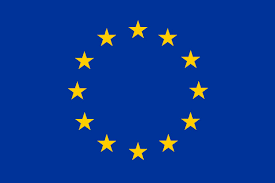Press release Europe is promoting a fair and powerful data economy system in its agri-food chains, through (among other things) the €10M project Data4Food2030
ILVO is a partner, Wageningen is coordinator
Smart data applications contribute to more efficient, more economical and more sustainable processes in a production chain, that is already well-known. The same is probably also true in the economic chains within our agri-food system. Data4Food2030 takes precise aim at additional development paths and approaches them with a caring attitude, to ensure that the innovative data economy there not only creates efficiency and added value, but also realizes the fair and inclusive digital collaborations.
The European Data4Food2030 project received €10 million in funding to explore the data economy in European food systems. The project, coordinated by Wageningen University & Research (the Netherlands), involves a network of 24 partners from 12 different countries in Europe. Participating as a Flemish (Belgian) partner is Flanders Research Institute for Agriculture, Fisheries and Food (ILVO).
Many social benefits possible
In the agri-food sector, many actors have an impact on food losses, pesticide use, health, etc. "Data sharing systems and associated smart apps can and will emerge in the near future to achieve goals such as reduced use of crop protection products with the same yield, or to reduce food waste, or to better close food loops," he said.
"There are endless possibilities and benefits that can result from the economic use of datasets. The economy that results from sharing this data is still on the rise, so now is the time to ensure that it develops in a fair and inclusive manner."Technology versus social acceptance
"While these changes are promising, the digital transformation of food systems has entered a gray zone," said Dr. George Beers, project coordinator for Data4Food2030 at Wageningen Research. "In this gray zone, food systems, supported by data-driven innovations and data platforms, are expected to transform into a food economy, strongly rooted in a data economy. Whether this happens, and how quickly, depends on how effectively social sciences will work alongside technology."
Dialogue will thus be an important task. The evolutions and characteristics of the data economy for food systems will be mapped by the researchers, and further development will be monitored and improved and adjusted thanks to an ongoing dialogue with all stakeholders.
Privacy and inclusion: ethical management of data
Big data can really help make European food systems more sustainable, according to the partners in the Data4Food2030 project, if the issues around privacy and inclusivity are managed in a smart way. The project is committed to ethical management of data and a relationship of trust with all stakeholders, including marginalized groups with limited access to data because of issues such as remote/rural location, gender or ethnic background.
"Getting access to big data, in other words, has never been easier. Europe is now calling for more attention to how it affects society as a whole and wants to ensure that those who share their data have confidence in how it is used."ILVO maps European data economy for food systems
ILVO is tasked with setting up a monitoring system for new developments and leading the search for models to measure the potential impact of this data economy: this is a central role in the project. The monitoring system will be consultable in an online dashboard, in which the evolution, different aspects and impact of different scenarios will be visible.
Nine concrete cases
Stakeholders (partners, suppliers, consumers) from nine different EU countries will be part of nine case studies, each representing food-related services in 27 EU countries.
These nine case studies are practical examples of the data economy at micro and meso-economic levels, each using data and technologies. These examples are studied to identify and improve the data economy to promote data-driven business models that are fair and inclusive for food production, supply chains and circular economy, for example.Each case is examined to better understand the data space in its context. For example, one of the case studies uses available data from pig farms to measure the impact of sanitation measures to try to meet consumer expectations. Another case looks at Amsterdam's plan to be fully circular by 2050. In this context, it is important how data on residual streams and by-products can be valorized to create economic, social and environmental insights for stakeholders working to reduce urban food waste.
ILVO is also leading one of these case studies, by collaborating with the Flemish data sharing platform DjustConnect with the French data sharing platform AgDataHub. The aim is to be able to exchange data between the platforms in order to provide an example of how this could be done at the European level. In this way, we are working toward a federally-structured European data space.
Conclusion
Data-driven innovations are changing the way we produce, consume and share food. In the process, they are transforming our economy and society, and these changes are rapid and profound. Data4Food2030 aims to improve the data economy for food systems, from which clear design principles, recommendations and solutions can be derived.
These will improve and adapt policy and implementation at public and private levels. By closely involving stakeholders, having them provide input on different concepts of the data economy and having them evaluate different project outcomes, the impact of the project on the food system will be increased.Project Coordinator
Dr. George Beers, Wageningen Research NL T. +31 703 358 337 George.beers@wur.nl
Project Communication
Grigoris Chatzikostas, FoodScaleHub GR T.: +30 697 933 6374 g@foodscalehub.com
ILVO Project Management
Eva Maes, ILVO +32 9 272 27 79 Eva.Maes@ILVO.Vlaanderen.be
Social Media
Facebook https://www.facebook.com/data4...
Twitter https://twitter.com/Data4Food2...
LinkedIn https://www.linkedin.com/compa...
YouTube https://www.youtube.com/channe...
Website www.data4food2030.eu
Funded by the European Union. Views and opinions expressed are however those of the author(s) only and do not necessarily reflect those of the European Union or Research Executive Agency. Neither the European Union nor the granting authority can be held responsible for them.
